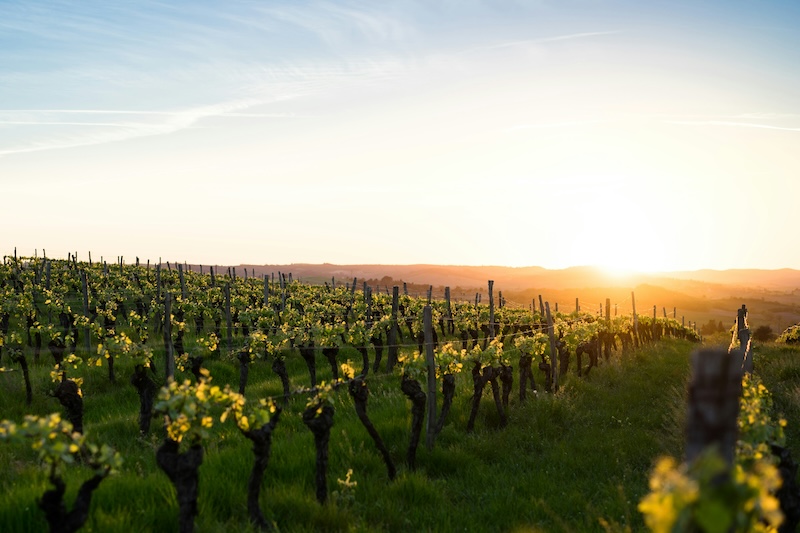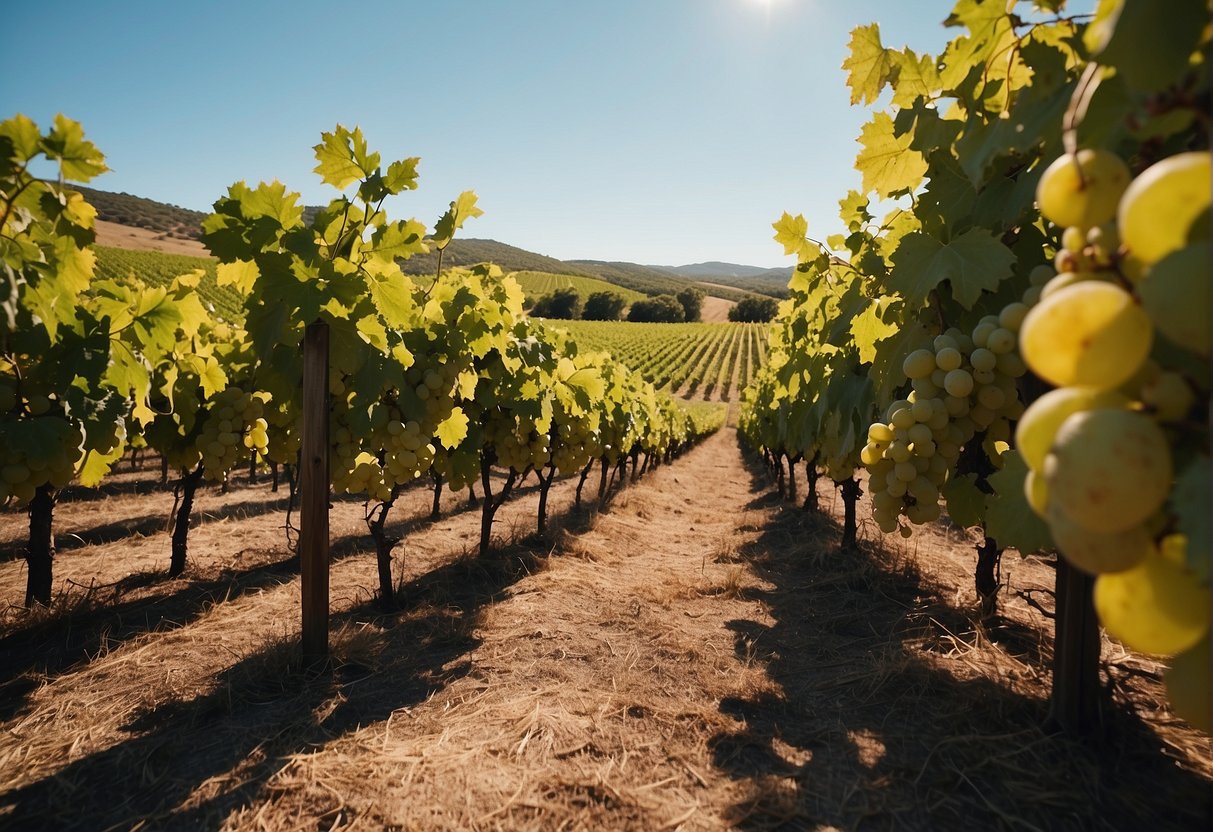Texas’ wine industry is riding the crest of a burgeoning trend towards organic and sustainable winemaking, reflecting a broader shift in consumer preferences and environmental awareness. As the interest in eco-friendly agriculture and responsible stewardship of the land grows, Lone Star vintners are increasingly adopting practices that align with these values. They are going beyond merely producing wine, focusing on organic cultivation methods that result in not only a purer bottle but also contribute to the health of the vineyard ecosystem.
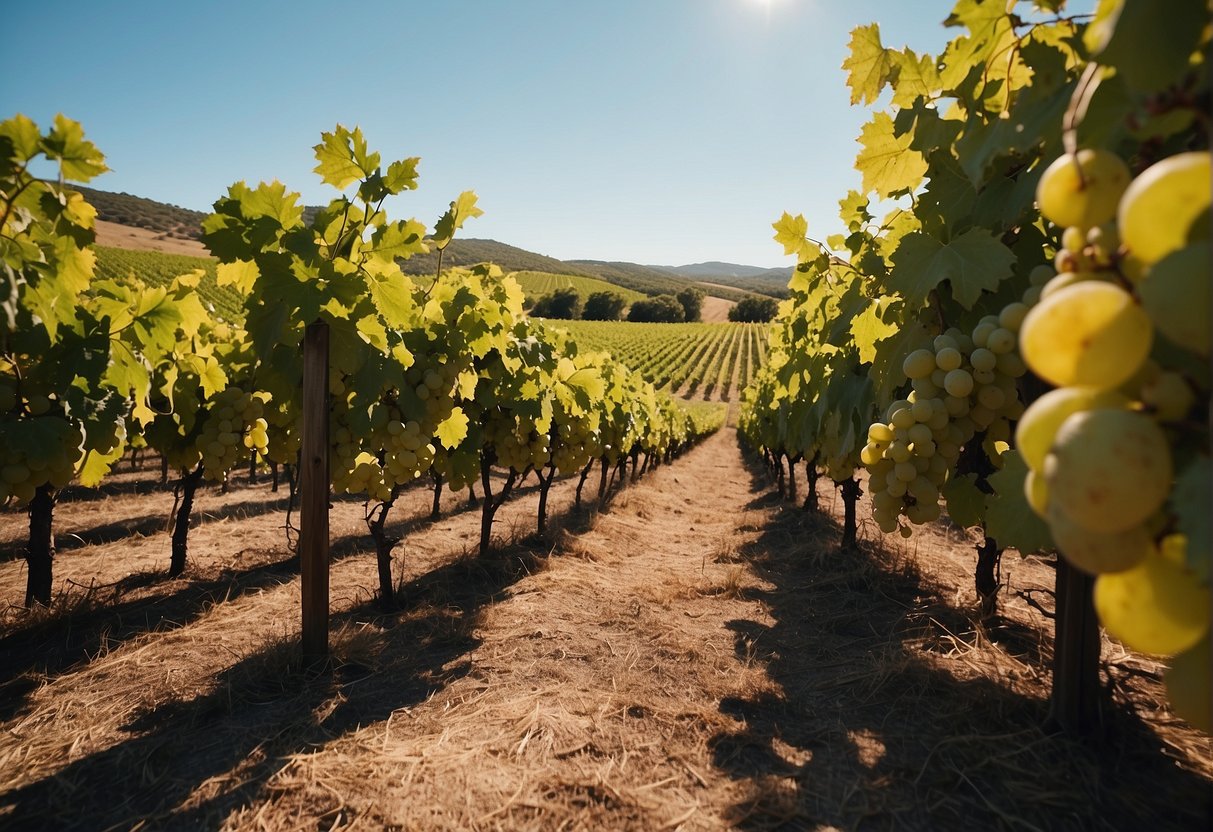
Sustainable winemaking in Texas isn’t just a passing fad; it’s becoming part of the region’s identity. Texas wineries that embrace these methods often find that it enhances the distinct terroir that gives their wines character. The adoption of non-invasive farming techniques, dry farming, and the use of natural compost enriches the soil and conserves water, which is particularly meaningful in Texas’ variable climate.
Viticulture experts in the state are exploring innovative ways to manage pests and diseases without resorting to synthetic chemicals. Through careful monitoring and natural interventions, they maintain vine balance and grape quality. Such efforts contribute to a growing portfolio of Texas wines that offer a taste of the land’s authentic flavor while also ensuring its vitality for future generations.
The Rise of Organic and Sustainable Winemaking in Texas
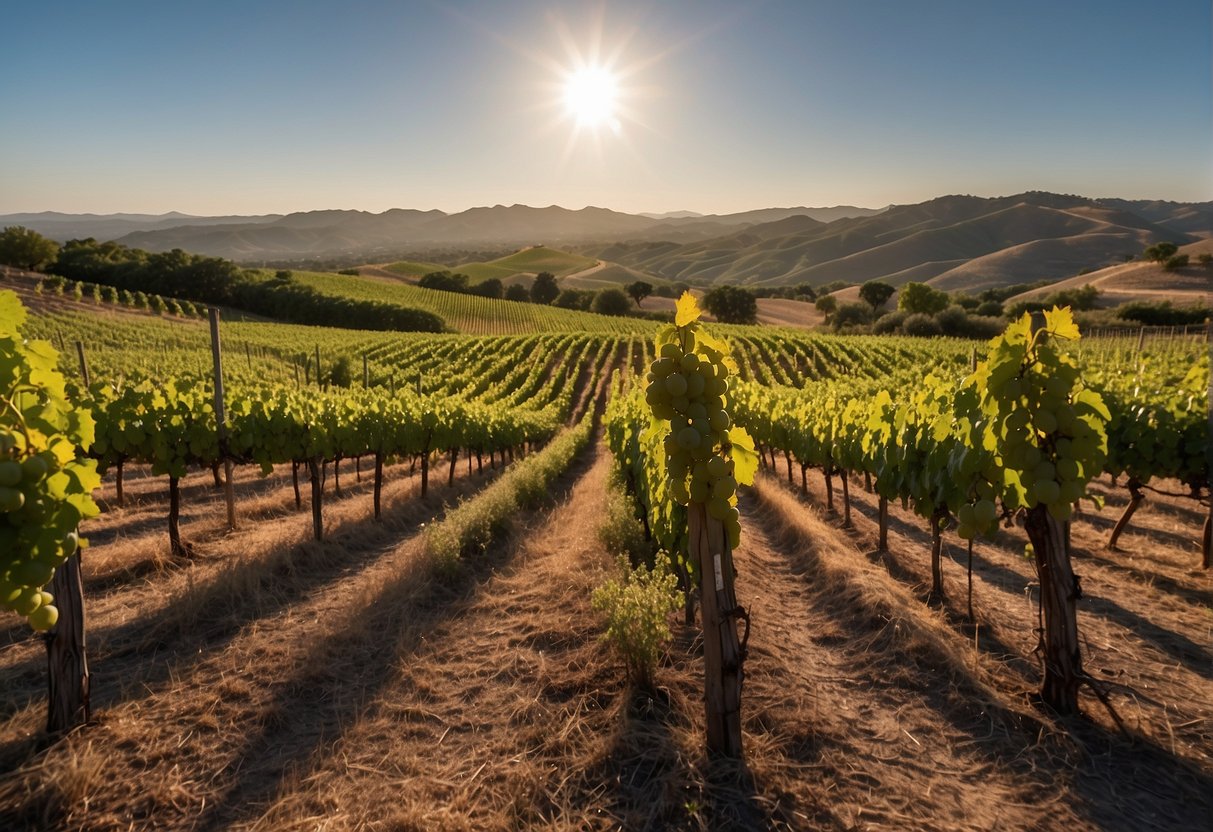
Texas winemakers are increasingly embracing organic and sustainable agricultural practices. Organic winemaking eschews synthetic fertilizers and pesticides, focusing instead on maintaining the natural ecosystem. Sustainable winemaking extends this philosophy, aiming to support the environment, economy, and social structures for the long term.
- The organic wine segment’s growth reflects consumer demand for environmentally friendly products.
- Organic vineyards are certified after meeting strict regulations, including a transition period of three years.
Sustainable practices incorporate a broader range, such as water conservation, renewable energy use, and soil health initiatives like cover cropping. They often focus on the entirety of the winemaking process, from grape growing to packaging.
Typically, wineries prioritize:
- Energy-efficient technologies
- Recycling and composting programs
- Lightweight and recyclable packaging materials
Texas wine regions, such as the Texas Hill Country and High Plains, have seen a notable increase in vineyards obtaining organic or sustainability certifications. Shepherded by organizations like the Texas Department of Agriculture, which supports and promotes organic certification, the trend continues to gain momentum.
Key factors influencing this rise include:
- A growing awareness of climate change
- The desire for transparent labeling
- The appeal of “green” credentials among consumers
These practices not only attract environmentally conscious consumers but also often result in wines that more authentically express the terroir of their Texas origins.
Viticultural Practices for Sustainability
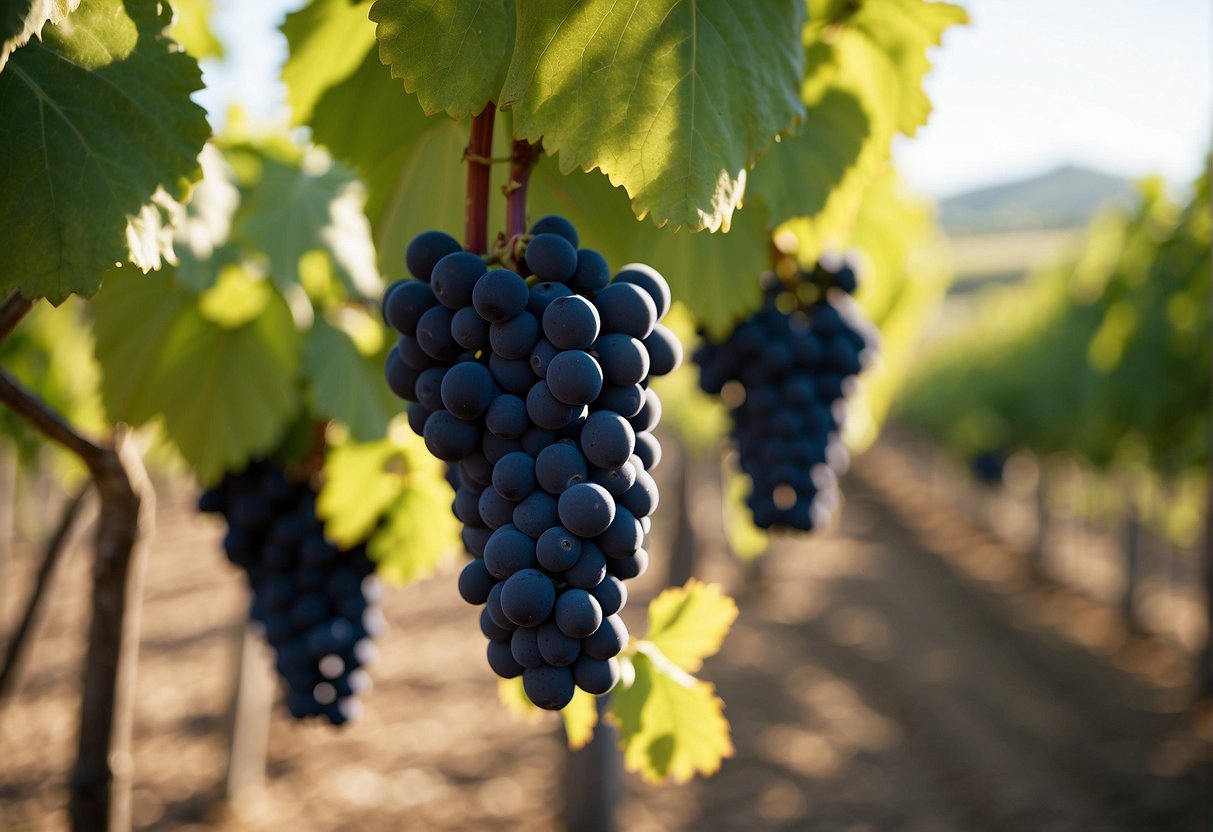
The Texas wine industry is embracing eco-friendly approaches, with key focuses on organic viticulture, water use efficiency, and renewable energy adoption.
Organic Viticulture
Texas winemakers are employing organic farming practices to cultivate grapes without the use of synthetic pesticides, herbicides, or fertilizers. They rely on companion planting and natural predators to manage pests, enhancing vineyard biodiversity.
Water Conservation Techniques
With a climate that can range from arid to humid, water conservation is vital. Techniques include:
- Drip irrigation systems: Deliver water directly to the roots, reducing waste.
- Mulching: Maintains soil moisture and temperature.
- Cover crops: Improve water retention and reduce erosion.
Renewable Energy Use
Wineries are harnessing solar and wind power to offset energy needs. For instance:
- Solar panels: Installed on winery roofs to generate electricity.
- Wind turbines: Utilized in some vineyards to supplement power supply.
Benefits and Challenges
The shift toward organic and sustainable winemaking in Texas provides a blend of positive impacts and notable obstacles. This section outlines the environmental gains and economic possibilities, changes in consumer behavior and market trends, alongside an overview of the regulatory complexities facing producers.
Environmental and Economic Benefits
Organic and sustainable winemaking techniques in Texas offer significant environmental benefits. Practices like reduced chemical use bolster biodiversity, improving soil health and vineyard ecosystems. Economically, these methods can lead to cost savings over time through increased resilience to climate change and resource scarcity.
Market Trends and Consumer Perception
There’s a growing consumer trend towards organic and health-conscious products, and Texas wines are no exception. The demand for organic wines is increasing as consumers become more aware of sustainable agriculture’s importance. This shift is reflected in the premium prices that organic wines can command, influencing Texas wineries to adopt these practices.
Regulatory Hurdles and Certification
Texas wineries face challenges in obtaining organic certification due to strict regulatory requirements. The certification process is often costly and time-consuming, and maintaining certification necessitates meticulous record-keeping and adherence to evolving standards. Despite these hurdles, certification can provide a competitive edge in the marketplace.
Spotlight on Texan Wineries
Texas wineries are gaining recognition for their commitment to organic and sustainable winemaking practices, carving a niche for themselves in an industry that is increasingly environmentally conscious.
Pioneering Wineries in Sustainability
Texan wineries, such as Solaro Estate and Bending Branch Winery, were among the first in the region to adopt organic farming techniques. They have foregone the use of synthetic pesticides and fertilizers in favor of natural alternatives. Duchman Family Winery is another notable name, emphasizing water conservation and energy efficiency in their operations.
Case Studies: Success Stories
- Pedernales Cellars: Specializing in Spanish and Rhone style wines, this winery has implemented advanced water recycling systems and relies on wind power.
- McPherson Cellars: Not only do they practice sustainable winemaking, but they also helped to pioneer the modern Texas wine industry, setting standards for eco-friendly practices.
Innovative Techniques and Future Outlook
Winemakers are exploring beyond traditional practices by introducing innovative techniques such as dry farming and biodynamic preparations to enrich soils. Looking forward, Texas wineries are poised to increase their use of sustainable energy sources and expand their organic vineyards, further solidifying the state’s position in the green winemaking movement.

